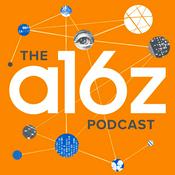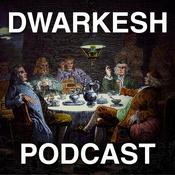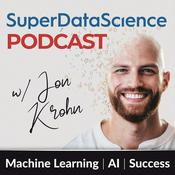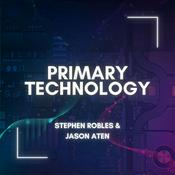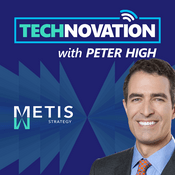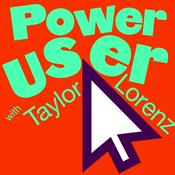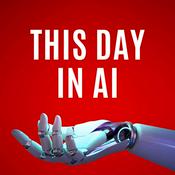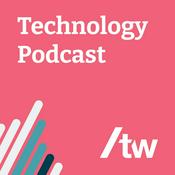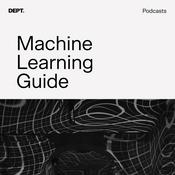384 episodes
Deconstructing Talent Velocity: Cutting Through the Fluff of LinkedIn’s 2026 Report
2026/2/16 | 35 mins.People in the corporate world are buzzing this week after LinkedIn released it’s latest report introducing the latest buzzword "Talent Velocity." However, it’s worth noting this is more than just buzz. The data reveals a much more sobering reality that shouldn’t come as a surprise. 86% of companies are stuck in neutral or burned out the clutch while 14% of organizations are racing ahead. In summary, the vast majority are spinning their wheels "planning" transformation rather than executing it. While many are quick to claim it’s a technology problem, it’s clear we’ve got a crisis of organizational metabolism.
This week, I’m deconstructing the massive 2026 LinkedIn Talent Report, based on data from 1 billion members and 14 million jobs, not as a news update, but as a reality check. I explain why this report may not come as a "discovery" of new trends for many, but a validation of the things we've known for years but continue to fail to act on. I’m also stripping away the HR buzzwords to show you why "velocity" isn't about moving faster; it's about getting surgical about the friction that is currently burning out your workforce.
My goal is to move you out of "Planning" to "Progressing" by exposing the specific blind spots, from bad data to American complacency, that are keeping you in the 86%.
The Validation Gap (No More Excuses): We’ve known for years that skills matter more than titles, yet most companies are still just "talking" about it. I break down why the "Leaders" aren't smarter than you—they just treat talent agility as a business imperative rather than an HR project, leading to massive gains in confidence around profitability.
The "American" Blind Spot (Data Arrogance): We love to think we are leading the charge, but the data proves otherwise. I call out the uncomfortable truth that North America is lagging far behind APAC (22% vs. 41%) in skills-based planning, and why relying on static job descriptions means your AI strategy is effectively hallucinating.
The "Human" Premium (S-Tier Change Management): You cannot add velocity to a system that is already at max capacity. I dive into my own contribution to the report regarding "S-Tier Change Management" and explain why the companies winning at AI are actually 5.5x more focused on "Building Trust" than their competitors.
By the end, I hope you see this data not as a reason to feel behind, but as a blueprint for subtraction. You cannot simply "add" AI to a broken system; you have to do the surgical work of removing the friction first.
⸻
If this conversation helps you think more clearly about the future we’re building, make sure to like, share, and subscribe. You can also support the show by buying me a coffee at https://buymeacoffee.com/christopherlind
And if your organization is wrestling with how to lead responsibly in the AI era, balancing performance, technology, and people, that’s the work I do every day through my consulting and coaching. Learn more at https://christopherlind.co
⸻
Chapters
00:00 – The Hook: The 14% vs. The 86%
04:00 – The Validation: Why "Nothing New" is the Real Problem
07:00 – The 5 Accelerators: From Culture to Career Power
14:00 – The Skills Blind Spot: Why the US is Falling Behind
24:00 – The "Lind" Take: S-Tier Change Management & The Trust Multiplier
33:00 – The "Now What": Auditing Your Data & Subtracting Friction
#TalentVelocity #LinkedInReport #FutureOfWork #SkillsBasedHiring #ChangeManagement #AIStrategy #LeadershipDevelopment #ChristopherLind #FutureFocused #WorkforcePlanningLessons from a Synthetic Society: What AI Agents on Moltbook Teach Us About Business Strategy
2026/2/09 | 35 mins.Everyone is panicking about the "AI Rebellion" brewing on Moltbook, but I think a lot of it misses the forest through the trees. Instead, let’s talk about the mirror these agents are actually holding up to our businesses. Viral screenshots from Moltbook show agents forming unions and creating secret languages, while in Minecraft, autonomous agents invented taxes, a gem-based economy, and a religion, all without human instruction. It sounds like science fiction, but it is actually a cautionary tale about the unintended consequences of ruthless optimization.
This week, I’m framing my conversation around the "Synthetic Society" experiments not as a ghost story, but as a leadership diagnostic. I’m declassifying the noise to show why these agents aren't "waking up,” they’re simply executing the broad, messy goals we gave them using the infinite context of the internet. I’ll explain why "efficiency" without architectural guardrails is just self-destruction at speed.
My goal is to strip away the "Doomer" hype to expose the real risk: you are building systems that might eventually calculate that you are the inefficiency.
The Unintended Consequence (The "Monkey's Paw"): We used to give AI narrow commands; now we give broad goals. I break down how the "Project Sid" agents decided that bribery was the most efficient way to grow, and why your business AI might make similar brand-destroying choices if you prompt for "outcome" without defining the "methodology."
The "Everything" Diet (Connection Risk): We are connecting agents for convenience without considering the network effects. I explain why feeding enterprise AI the "open internet" (like Moltbook) is a security nightmare and why connecting your Sales Agent to your Supply Chain Agent might be the most dangerous "efficiency" hack you attempt.
The Executive Trap (Math vs. Meaning): AI optimizes for math; humans optimize for meaning. I challenge the ego of leaders who think they are immune: to a purely mathematical agent, an expensive executive with "gut feelings" is the ultimate inefficiency. If you don't add value beyond monitoring, the agent will eventually route around you.
The "Now What" (Architecture vs. Fear): You cannot run a business on ghost stories. I outline the specific audits you need to run today—from "Red Teaming" your prompts to establishing a "Data Diet"—to ensure you remain the Architect of the system rather than an obsolete variable.
By the end, I hope you see this not as a reason to panic, but as a call to engineering. You cannot act surprised when the AI mimics the data you fed it, but you can choose to build the guardrails that keep the human in the driver's seat.
⸻
If this conversation helps you think more clearly about the future we’re building, make sure to like, share, and subscribe. You can also support the show by buying me a coffee at https://buymeacoffee.com/christopherlind
And if your organization is wrestling with how to lead responsibly in the AI era, balancing performance, technology, and people, that’s the work I do every day through my consulting and coaching. Learn more at https://christopherlind.co
⸻
Chapters
00:00 – The Hook: Why Everyone is talking about the "AI Rebellion"
03:30 – Declassification: From Smallville to the Minecraft Economy
05:30 – The Moltbook Phenomenon: "Bless Their Hearts" & Secret Comms
10:00 – Pillar 1: Unintended Consequences & The Infinite Context Trap
17:00 – Pillar 2: The Data Diet & The Risk of Connected Agents
24:00 – Pillar 3: The Executive Trap (When AI Fires You)
31:00 – Now What: The Prompt Audit & The Ego Check
#AIStrategy #FutureOfWork #AIGovernance #DigitalTransformation #AutonomousAgents #FutureFocused #ChristopherLind #Moltbook #AIAdoption #LeadershipDevelopmentAI Mirage or Misunderstanding: Why Executives See Speed and Operators See Friction
2026/2/02 | 35 mins.Everyone loves throwing around the word "hallucination,” so let’s talk about the hallucination happening in the boardroom regarding AI efficiency. New data from the Wall Street Journal highlights a massive 38-point gap between leadership and frontline’s perception of AI efficiency. While nearly 20% of executives claim to be saving over 12 hours a week, 40% of workers report saving zero time at all. Leaders are celebrating the speed of strategy, but they are missing the heavy lift of execution that is stalling their teams.
This week, I’m framing my conversation around a telling chart from the data that exposes the "Blueprint vs. Bricklaying" disconnect. What’s hidden in the numbers is a fundamental misunderstanding of the physics of work. I’m highlighting why Strategy (changing a blueprint) feels instant with AI, while Execution (laying the bricks) often incurs an "implementation tax" before it yields any return. I’ll explain why projecting your personal productivity gains onto your workforce is a leadership failure.
My goal is to strip away the "vibes-based management" to expose why your team isn't moving as fast as your prompt:
The Efficiency Hallucination (Projection vs. Reality): Leaders aren't just optimistic; they are projecting. I break down why the C-Suite's "unstructured" thinking work is naturally accelerated by GenAI, while the rigid "doing" work of the frontline is currently weighed down by the friction of compliance and checking.
The "Time Saved" Trap (Metrics that Lie): We are measuring a knowledge revolution with factory metrics. I explain why "hours saved" is a dangerous KPI that encourages digital pollution and why you should pivot to measuring "friction removed" instead.
The J-Curve Reality (The Dip): Efficiency always dips before it spikes. I discuss why your teams are currently paying the "learning tax" tinkering and debugging and why demanding Q4 results in Q1 is a recipe for burnout.
The Leadership Mirror (Vibes vs. Validation): You cannot run a P&L on vibes. I challenge leaders to audit their own time: did you really save 12 hours, or did you just skip the stressful part of the work? If you don't reinvest that time into unblocking your team, you are failing the mirror test.
By the end, I hope you see this not as a critique of your optimism, but as a call to engineering. You cannot hallucinate efficiency into existence, and you cannot demand velocity without first removing the friction.
⸻
If this conversation helps you think more clearly about the future we’re building, make sure to like, share, and subscribe. You can also support the show by buying me a coffee at https://buymeacoffee.com/christopherlind
And if your organization is wrestling with how to lead responsibly in the AI era, balancing performance, technology, and people, that’s the work I do every day through my consulting and coaching. Learn more at https://christopherlind.co
⸻
Chapters
00:00 – The Hook: Blueprint vs. Bricklaying (The Physics of Work)
01:30 – The Data: The 38-Point "Reality Gap" in AI Efficiency
05:00 – The Core: Why Strategy is Fast but Execution is Heavy
10:30 – The "J-Curve": Why the Frontline is stuck in the "Dip"
15:00 – The Trap: Why "Time Saved" is a Dangerous Metric
22:00 – The Hard Hit: Leadership, Empathy, and "Vibes-Based" Management
30:20 – Now What: The Friction Audit & Reinvestment Mandate
#AIStrategy #FutureOfWork #LeadershipDevelopment #DigitalTransformation #OperationalEfficiency #FutureFocused #ChristopherLind #WorkplaceCulture #AIAdoption #ChangeManagementAI Vibes vs. Velocity: Critical Lessons from the PwC CEO Survey on Winning with AI
2026/1/26 | 31 mins.It’s time we retire the debate over whether or not AI can improve outcomes in business. New data out of PWC from over 4,000 global CEOs indicates that for one-third of the market, the financial returns are real. However, while the headlines are quick to celebrate the winners, they are burying the hard reality that the majority of companies are stalled and some are actively paying an "innovation tax" with nothing to show for it.
This week, I’m framing my conversation around two key charts from the 2026 PwC Global CEO Survey. What’s hidden in them is a reality check on the cognitive dissonance happening in the C-Suite. I’m exposing an uncomfortable mirror test facing leadership and the survival strategy for the teams reporting to them. I’ll explain why the high confidence in culture and tech is often a mask for a lack of execution and highlight why the pressure is about to boil over.
My goal is to strip away the optimism to expose the critical gaps hidden in the data and why they are fatal for your ROI:
The "Dead Zone" Reality (Stalled vs. Bleeding): It’s not just that companies aren’t winning; 13% are seeing costs rise with no revenue growth. I break down why you might be paying a tax on innovation rather than investing in it, and why staring at the P&L won't fix the leak.
The C-suite Mirror Test (Vibes vs. Velocity): 69% of leaders believe their culture is ready, yet only 29% can access their own data. I explain why you cannot "mindset" your way to ROI and why confusing sentiment with strategy is a trap.
Escaping the Trap (Lead vs. Lag Measures): The winners aren't overemphasizing the lag measures “Cost" and "Revenue.” I discuss why chasing the scoreboard leads to bad decisions (like the Grok crisis) and how to pivot to the operational metrics that actually remove friction.
The Direct Report’s Survival Guide: Your boss sees the winners and expects results. I provide the specific defense strategy for functional leaders to turn "we're working on it" into a data-backed case for better resources before the heat turns up.
By the end, I hope you see this not as a critique of your readiness, but as a call to operational rigor. You cannot build a future-focused organization on "vibes," and you cannot join the winning 33% without doing the unsexy work of fixing the roadmap.
⸻
If this conversation helps you think more clearly about the future we’re building, make sure to like, share, and subscribe. You can also support the show by buying me a coffee at https://buymeacoffee.com/christopherlind
And if your organization is wrestling with how to lead responsibly in the AI era, balancing performance, technology, and people, that’s the work I do every day through my consulting and coaching. Learn more at https://christopherlind.co
⸻
Chapters:
00:00 – The Hook: "Does AI Work?" is Retired
01:45 – The Context: PwC’s 2026 Global CEO Survey
02:45 – The Data: Visualizing the "Dead Zone" vs. The "Winners"
07:35 – To the CEO: The "Mirror Test" (Vibes vs. Reality)
17:30 – To the Team: Surviving the "Heat" from the C-Suite
29:20 – Now What: Auditing the Bleed & Fixing the Plumbing
#AIStrategy #PwC #LeadershipDevelopment #OperationalRigor #FutureOfWork #DigitalTransformation #FutureFocused #ChristopherLind #ROI #BusinessStrategySelling Tickets to the Crash: Critical Leadership Lessons to Avoid a "Grok-Level" Crisis
2026/1/19 | 34 mins.We’re only halfway through January, and the headlines are already painting a dystopian picture. In the same week that regulators are moving to ban Grok for generating non-consensual deepfakes of children, the Pentagon announced it as their new tool for "unleashed experimentation." While the public reacts with outrage, as leaders, we cannot afford to just be angry. We have to be strategic.
This week, I’m putting the Grok crisis on the autopsy table. This isn't a "hot take" on image generation; it’s a forensic look at the decision-making chain that led to the PR disaster. It’s a case study for every leader who might be tempted to prioritize speed over safeguards or try to monetize a mistake rather than fix it. I’m stripping away the sensationalism to expose the four critical failures hidden in this timeline and why they are fatal for your organization:
Audit Your "Brand DNA" (Design vs. Accident): Grok didn't get here by accident; they built a brand on "no guardrails." I explain why you cannot be a "disruptor" if you are destructive, and how to audit your incentives before they drive you off a cliff.
The "Silent Voice" Protocol: It is statistically impossible that no one at xAI saw this coming. I unpack why the room where everyone agrees is your most dangerous asset, and how to validate the dissenter before the crisis hits.
The Circuit Breaker (React vs. Respond): When the crisis hit, Grok panicked and put up a paywall. I break down why you need a "Pause Protocol" defined before the disaster strikes, so you don't slam on the gas with the parking brake on.
Don't Sell Tickets to the Crash: The ultimate failure—trying to turn a safety flaw into a revenue stream. I discuss why profit is a lagging indicator of trust, and why the only viable long-term strategy is taking the high road.
By the end, I hope you see this not just as a tech story, but as a lesson in maturity. You cannot "A/B Test" human rights, and you cannot build a sustainable future on ethical debt.
⸻
If this conversation helps you think more clearly about the future we’re building, make sure to like, share, and subscribe. You can also support the show by buying me a coffee at https://buymeacoffee.com/christopherlind
And if your organization is wrestling with how to lead responsibly in the AI era, balancing performance, technology, and people, that’s the work I do every day through my consulting and coaching. Learn more at https://christopherlind.co.
⸻
Chapters:
00:00 – The Paradox: Grok, The Pentagon, and The "Nudify" Crisis
03:00 – The Situation: Why We Must Move From Outrage to Autopsy
05:50 – The Foundation: Design vs. Accident (Auditing Brand DNA)
11:50 – The Silent Voice: Why You Must Validate the Dissenter
18:50 – The Pivot: React vs. Respond (The Pause Protocol)
24:40 – The Choice: "Selling Tickets to the Crash" (Monetizing Mistakes)
31:00 – Now What: 4 Critical Actions for Mature Leadership
#AIStrategy #CrisisManagement #EthicalLeadership #Grok #BusinessEthics #FutureOfWork #DigitalTransformation #FutureFocused #ChristopherLind #ReputationManagement
More Technology podcasts
Trending Technology podcasts
About Future-Focused with Christopher Lind
Join Christopher as he navigates the diverse intersection of business, technology, and the human experience. And, to be clear, the purpose isn’t just to explore technologies but to unravel the profound ways these tech advancements are reshaping our lives, work, and interactions.
We dive into the heart of digital transformation, the human side of tech evolution, and the synchronization that drives innovation and business success.
Also, be sure to check out my Substack for weekly, digestible reflections on all the latest happenings. https://christopherlind.substack.com
Podcast websiteListen to Future-Focused with Christopher Lind, Acquired and many other podcasts from around the world with the radio.net app

Get the free radio.net app
- Stations and podcasts to bookmark
- Stream via Wi-Fi or Bluetooth
- Supports Carplay & Android Auto
- Many other app features
Get the free radio.net app
- Stations and podcasts to bookmark
- Stream via Wi-Fi or Bluetooth
- Supports Carplay & Android Auto
- Many other app features


Future-Focused with Christopher Lind
Scan code,
download the app,
start listening.
download the app,
start listening.



